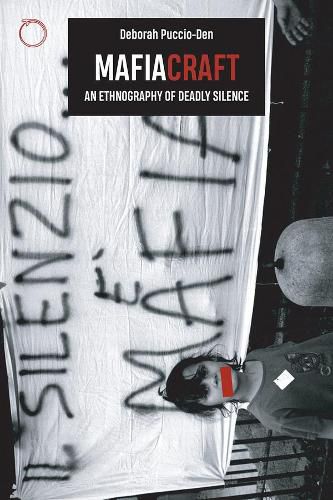Readings Newsletter
Become a Readings Member to make your shopping experience even easier.
Sign in or sign up for free!
You’re not far away from qualifying for FREE standard shipping within Australia
You’ve qualified for FREE standard shipping within Australia
The cart is loading…






The Mafia? What is the Mafia? Something you eat? Something you drink? I don’t know the Mafia. I’ve never seen it. Mafiosi have often reacted this way to questions from journalists and law enforcement. Social scientists who study the Mafia usually try to pin down what it really is, thus fusing their work with their object. In Mafiacraft, Deborah Puccio-Den undertakes a new form of ethnographic inquiry that focuses not on answering What is the Mafia? but on the ontological, moral, and political effects of posing the question itself. Her starting point is that Mafia is not a readily nameable social fact but a problem of thought produced by the absence of words. Puccio-Den approaches covert activities using a model of Mafiacraft, which inverts the logic of witchcraft. If witchcraft revolves on the lethal power of speech, Mafiacraft depends on the deadly strength of silence. How do we write an ethnography of phenomena that cannot be named? Puccio-Den approaches this task with a fascinating anthropology of silence, breaking new ground for the study of the world’s most famous criminal organization.
$9.00 standard shipping within Australia
FREE standard shipping within Australia for orders over $100.00
Express & International shipping calculated at checkout
The Mafia? What is the Mafia? Something you eat? Something you drink? I don’t know the Mafia. I’ve never seen it. Mafiosi have often reacted this way to questions from journalists and law enforcement. Social scientists who study the Mafia usually try to pin down what it really is, thus fusing their work with their object. In Mafiacraft, Deborah Puccio-Den undertakes a new form of ethnographic inquiry that focuses not on answering What is the Mafia? but on the ontological, moral, and political effects of posing the question itself. Her starting point is that Mafia is not a readily nameable social fact but a problem of thought produced by the absence of words. Puccio-Den approaches covert activities using a model of Mafiacraft, which inverts the logic of witchcraft. If witchcraft revolves on the lethal power of speech, Mafiacraft depends on the deadly strength of silence. How do we write an ethnography of phenomena that cannot be named? Puccio-Den approaches this task with a fascinating anthropology of silence, breaking new ground for the study of the world’s most famous criminal organization.